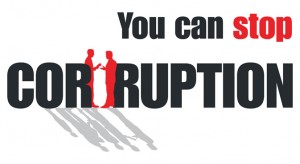70% of public sector contracts said to be shrouded in corruption globally
 It is estimated that 70 per cent of contracts in the public sector are shrouded in corruption, which inevitably leads to a rise in 20 to 30 per cent of the total contract sum.
It is estimated that 70 per cent of contracts in the public sector are shrouded in corruption, which inevitably leads to a rise in 20 to 30 per cent of the total contract sum.
Globally, about $400 billion changes hands per annum through corruption in public procurement around the world.
Mr Appiah Adomako, Executive Director, CUTS Ghana, an NGO, made this known during the celebration of the World Competition Day, which is aimed at raising awareness about competition in awarding of contract.
He noted that competition is a fundamental tenet of well-functioning markets, which encourage companies to provide consumers with the products and services that they want.
“It results in lowering prices for goods and services, better service quality, wider choices for consumers, stimulation of innovation and more importantly efficiency in allocation of resources,” he added.
He called for proper attention to be given to public procurement as it is the objective of every Government to get value for money at a very competitive rate from a wide supply base while promoting domestic capacity and innovation amongst sellers.
He called on Public Procurement Authority, not to allow public officials to bend the procurement rules during public procurement.
“Competition policy and law is the wave for the future in ensuring that tax payers get value for money for goods and services,” he added.
Mr Adomako mentioned Malawi, Zimbabwe, Botswana, South Africa, Kenya, Burkina Faso, Mali among others as some of the countries in Africa which had put in place a competition law and agency to implement the act.
“As we celebrate the World Competition Day, we will appeal to the Government… to make the passage of the Competition Policy and Law a legislative agenda for 2015,” he added.
Justice Samuel Kofi Date-Baah, Board Chairman, CUTS Ghana, bemoan the lack of Competition Policy and an authority to regulate competitions in the country.
He cited collusion between suppliers, prices fixing, cartels, abusive monopoly, as some of the negative effects of lack of policy on competition in a country.
Source: GNA
